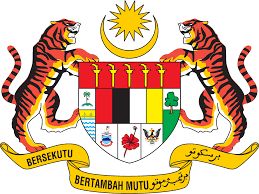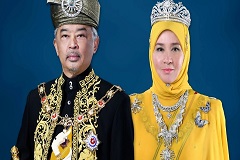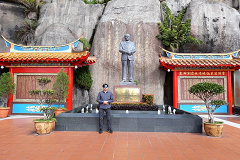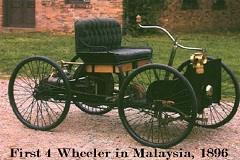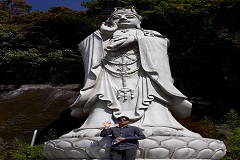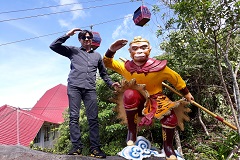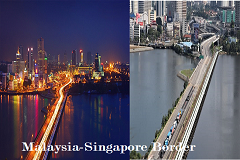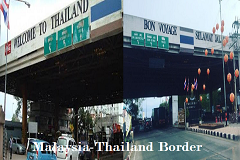Etiquettes and Manners for the Drivers: An Islamic Perspective
- On Nov, 10, 2022
- Admin
The noble Islamic Sharia is concerned with organizing all aspects of an individual’s life, for instance, routine matters, stay, travel, earning etc. Islam has prescribed etiquettes and moral grounds for the activities like travel, seeking recreation, tourism, work, visit or other itineraries. Many Muslims may neglect the etiquette of travel and its legal rulings. Here is the set of etiquettes and manners that a Muslim should know if he is going on a domestic or foreign trip.
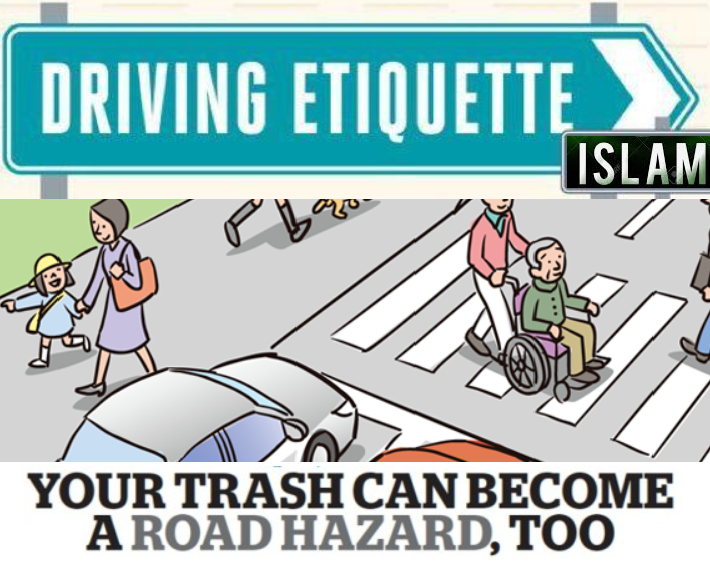
1. The life of a Muslim is always connected with Zikir (remembrance of Allah) and supplications, as there are many supplications that were mentioned in the Sunnah of the Prophet Muhammad (Peace Be Upon Him [PBUH]), which would comfort the heart of the believer, relieve his distress and ease his affairs by the grace of God Almighty. Different supplications are mentioned to be made at different times and in different occasions, while the travel supplication is one of the most important supplications that a Muslim care about and oblige to made during his travel. As travel is one of the matters that has reverence in the human heart, and therefore every traveler must seek help from God by reciting supplication for travel mentioned in several forms. For example, “With the Name of Allah. Praise is to Allah. Glory is to Him Who has provided this for us though we could never have had it by our efforts. Surely, unto our Lord, we are returning. Praise is to Allah. Praise is to Allah. Praise is to Allah. Allah is the Most Great. Allah is the Most Great. Allah is the Most Great. Glory is to You. O Allah, I have wronged my own soul. Forgive me, for surely none forgives sins but You.” (Abu Dawud: 3/34; At-Tirmidhi: 5/501; Albani, Sahih At-Tirmidhi: 3/156). The supplication for travel is a servant’s supplication to his Lord to make his journey safe and comfortable without accidents or horrific scenes. While the driver must use all his senses while supplicating to God, So that supplication is not just moving the lips, because certainty in the power of God Almighty is the most important characteristic of a believing servant when he supplicates to his Lord.
2. The driver should drive his car humbly, avoiding arrogance, aloofness, and vanity. God Almighty said, “And the slaves of the Most Beneficent (Allah) are those who walk on the earth in humility” (Al-Furqan: 63, QS 25: 63); in another chapter God almighty said, “And do not walk upon the earth exultantly. Indeed, you will never tear the earth [apart], and you will never reach the mountains in height (Al-Isra: 37, QS 17: 37). The prophet Muhammad (PBUH) said, “It is enough evil for a Muslim to hold his brother Muslim in contempt” (Riyad as-Salihin: 235).
3. Should stay away from intimidating others by speeding the car or honking its horn, or stopping it suddenly standing next to a person in order to frighten him. The Prophet Muhammad (PBUH) said, “It is not lawful for a Muslim that he frightens a Muslim.” He peace be upon him, said, “None of you should point out towards his Muslim brother with a weapon, for he does not know, Satan may tempt him to hit him and thus he would fall into a pit of fire (Hell)” (Sahih Al-Bukhari: 7072, Book 92, Hadith 23). Moreover, the car is one of those things that can kill a human, hence the Hadith stops the drivers to bad handle the car or misuse the road to avoid any damage.
4. Avoid throwing the bags of food or cans of drinks from the car’s window on the road or in its surrounding, especially while driving. Rather, it should be thrown in designated places, preserving the environment by keeping it clean and taking into account people’s feelings. Almighty Allah said, “And Allah loves those who make themselves clean and pure” (At-Taubah: 108). In addition, the Messenger of Allah (ﷺ) said, “The cleanliness is a condition of Iman (faith)” (Riyad as-Salihin: 1413).
5. Greeting people with a smile and respect. A smile is one of the treasures of a happy life, so do not skimp on it for your brothers on the road (and your smile in the face of your brother is a charity). Abu Dharr (RA) reported, Allah’s Apostle (ﷺ) said to me, ‘Do not consider anything insignificant out of good things even if it is that you meet your brother with a cheerful countenance.” (Sahih Muslim: 2626, Book 45, Hadith 187).
6. Remove the harmful objects and debris from the road as much as possible. Allah’s Apostle (ﷺ) said, “And removing of harmful things from the pathway is a charity. (Sahih Muslim: 1009, Book 12, Hadith 72).
7. Help someone who needs help. God almighty said, “And do good works, so that you may succeed.” (Al Hajj: 77, QS 22: 77). The Messenger of Allah (ﷺ) said, “Whoever relieves a Muslim of a burden from the burdens of the world, Allah will relieve him of a burden from the burdens of the Hereafter. In addition, whoever conceals (the faults of) a Muslim, Allah will conceal (his faults) for him in the world and the Hereafter. And Allah is engaged in helping the worshipper as long as the worshipper is engaged in helping his brother.” (Jami’ at-Tirmidhi: 1425, Book 17, Hadith 4).
8. Give way to ambulances and emergency services. The prophet Muhammad (PBUH) said, “Avoid sitting on the paths. They (the Companions) said: Allah’s Messenger, we cannot help but holding our meetings (on these paths) and discuss matters (there). Thereupon Allah’s Messenger (ﷺ) said, if you insist on holding meetings, and then give the path its due right. They said, what are its due rights? Upon this, he said, lowering the gaze, refraining from doing harm, exchanging of greetings, commanding of good and forbidding from evil. (Sahih Muslim: 2121c, Book 39, Hadith 3).
9. Not to gather or round up when accidents occur, due to the confusion it causes to the concerned authorities. Allah’s Messenger (ﷺ) said, “Whoever harms the Muslims in their ways, their curse shall be upon him.” (Al-Jami’ as-Saghir: 8245).
10. Guiding someone who asks you regarding the right direction towards his destination or a blind man who could have been distracted, should be guided properly. The Prophet (PBUH) said, “and guiding somebody on the road is regarded as charity.” (Sahih al-Bukhari: 2891, Book 56, Hadith 106).
11. Likewise, the etiquette of the driver during his travel is to be a good example of his religion and a good image of his homeland, so that he does not distort the image of Islam and Muslims by violating the teachings of Islam, and violating the customs and traditions of his country and homeland. The prophet Muhammad (PBUH) said, “Have the fair of Allah wherever you are, and follow an evil deed with a good one to wipe it out, and treat the people with good behavior." (Jami’ at-Tirmidhi: 1987).
The road is for everyone and not for a particular individual, so everyone must respect it, and respect others, whether driving or stopping. The Sharia of Islam is a law, and with its provisions and etiquette, it is complete and comprehensive. It has preserved the rights of the people, both personal and general. It has taken into account their needs, as well as taken care of their interests; Islamic texts provide complete guidance for mankind in all walks of life.
About the AuthorDr. Hafiz Abbas holds a PhD in Usuluddin from Universiti Sultan Azlan Shah (USAS), Malaysia. He is well versed with Islamic theology, Seerat-un-Nabi (SAW), and principles of Hadith. In addition, he is a teacher of Arabic.
Edited by: Ch. Mahmood Anwar
What is your opinion on the Islamic driving and road safety ethics guidelines? If you think they can be helpful to reduce on road death and damages toll, leave a comment below!

